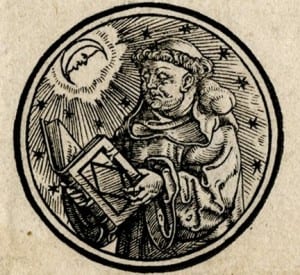Mark Hocknull spoke to us last week about the Victorian autodidact George Boole, most famous today as the inventor of Boolean logic and hence – along with fellow nineteenth-century luminary Ada Lovelace – one of the founders of our contemporary digital environment. Mark’s talk centred on Boole’s ‘On the Philosophical Remains of Bishop Grosseteste’, an unidentified, probably mid-Victorian offprint held in the library of the Lincoln Cathedral. Boole’s subject was the great twelfth-century Bishop of Lincoln Robert Grosseteste, who, like Boole himself, was a polymath – both a theologian and a (perhaps practicing) scientist. Boole identifies Grosseteste’s greatest ‘philosophical remains’ as his break away from syllogisms when examining the natural world: his move into a less rigid line of thought or argument in his works. At the same time, though, Boole was entranced that completely different methodologies could produce the same (correct) answer to a particular question, so that the Panglossian optimism that Grosseteste brought to his consideration of the natural world might yield similar results to Boole’s own more rigorously scientific investigations of, for example, lines and angles in the nineteenth century.
Mark Hocknull is Chancellor of Lincoln and Senior Visiting Fellow in the School of History and Heritage at the University of Lincoln, where he teaches history of science.

Roundel woodcut illustration of Robert Grosseteste, from a broadside depicting famous astronomers printed in Zurich in the sixteenth century.
Recent Comments